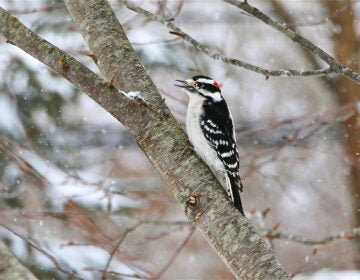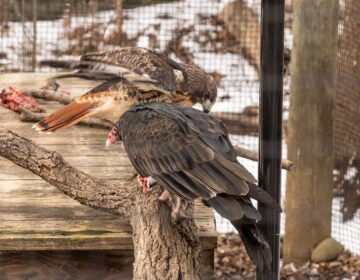Troubled Waters
Listen 48:25
Our lives depend on water — not just any water: clean, safe water. We need it for drinking, for cooking, for washing. And very often, we take it for granted. But in many parts of the world — including the U.S. — water is becoming a precious commodity.
The American West is currently experiencing a “megadrought,” which is rapidly draining important water supplies. That’s led one ranching community in Wyoming to seek out ways to protect their water sources. Emerging science is on their side — but the law isn’t.
On this episode, we talk about these and other people who are desperate to shore up and protect their water supply, and the conflicts that mission can bring. We hear stories about an environmental scientist who’s teaching other people how to source their own water, an eco-artist dedicated to empowering communities to know, restore, and preserve their waters, and more.
Also heard on this week’s episode:
- Climate change is causing the American West to experience what’s now being called a “megadrought” — the worst water shortage in centuries. The Ogallala Aquifer is a huge underground water source supplying eight states with this precious resource. But as one ranching community in Wyoming is finding out, that water is disappearing. Melodie Edwards, host and producer of The Modern West podcast from PRX and Wyoming Public Media, reports on how part of the problem is that water law hasn’t kept up with emerging science.
- If you live in a city, your water probably comes from a large public utility that purifies it in a treatment plant. Not so for environmental scientist David Tarsi, who has wells on his own property, and uses sand filters to clean up rain water. Reporter Jad Sleiman talks with Tarsi about his quest to teach more people how to collect and filter their own water supply.
- Associate producer Nichole Currie talks with eco-artist Betsy Damon about her decades-long quest to put water challenges — and solutions — in front of the public.
Segments from this episode
WHYY is your source for fact-based, in-depth journalism and information. As a nonprofit organization, we rely on financial support from readers like you. Please give today.






